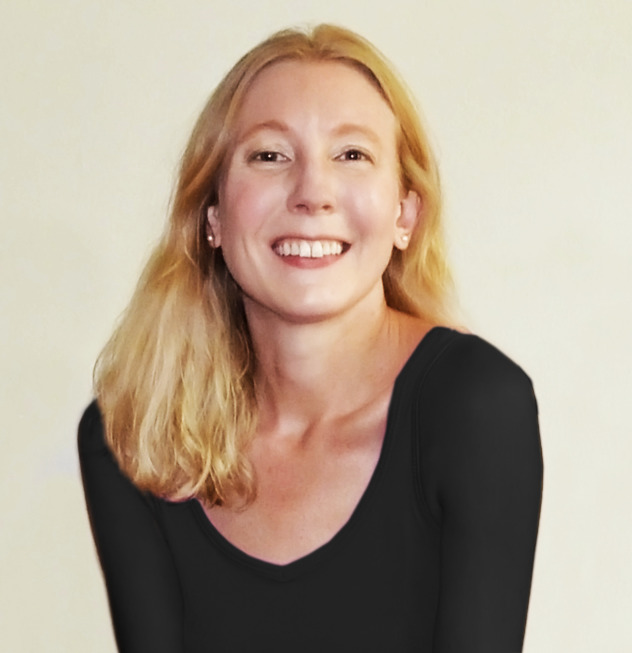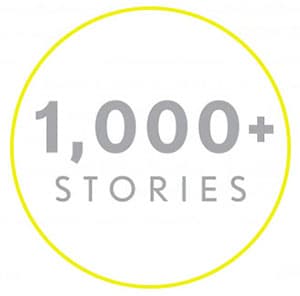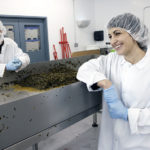
Sarah Williams has long been a consummate juggler. In college, she managed a full course load while pursuing a career in the publishing industry – and taught herself how to build and code for 1990s-era websites along the way. For over a decade, Williams continued climbing the ladder in publishing while quietly nurturing and growing her side project, a business consultancy. In 2010, she committed to the side hustle full-time, turning it into 816 New York. Her agency utilizes a mix of data analysis and creative thinking to come up with successful strategies that revitalize firms of all types and sizes – from small businesses and restaurants, to community-based organizations and larger companies in the energy and sustainability sector.
Here’s our lightly edited Q&A, from The Story Exchange 1,000+ Stories Project.
How is your business different from others in your industry?
We spot patterns and solve problems while respectfully addressing clients’ internal and external vulnerabilities. We employ both qualitative and quantitative methods – with heavy emphasis on data-driven analysis and reporting, planning and logistics, as well as team- and leadership-building – to inform and transform client expectations.
Tell us about your biggest success so far.
I uphold the values of reliability and integrity – traits that were perhaps best exemplified when many of my long-time clients sought guidance as Covid hit. Small entities don’t have luxurious margins or flexible budgets, and PPP loans were neither immediate nor life-saving. Clients called and I listened, then we strategized and created deliverables to offset the challenges.
For our leading restaurant client, we did 80 plus hours of work and billed $0. He and I had been in the trenches for years together, and through our efforts, he neither closed his doors nor suffered huge profitability losses. Our case studies for our crisis-related work attracted the attention of one of Mailchimp’s national podcasts, “Call Paul,” and my interview with them led to subsequent articles, mentorship requests, and industry connections. That exposure changed my career perspective and mid-life goals. More than anything now, I want to help leadership and their small teams to feel grounded, relevant, connected and prepared – however I can.
What is your top challenge and how have you addressed it?
The communications and tech industries are over-saturated with agencies who tarnish the market with lofty, often unsubstantiated claims – and they are much shinier and louder than we are. Thankfully, our reputation precedes us – profiles, interviews, and referrals speak to our personal, individualized, and transparent approach, which deviates both logically and logistically from others’ soulless digital content churn, bloated ad budgets and vanity metrics.
What is your biggest tip for other startup entrepreneurs?
Build connections often and early, and don’t take them for granted. Do not treat relationships like transactions. And always listen more than you speak!
How do you find inspiration on your darkest days?
I volunteer as a mentor, and I closely monitor the challenges people face around the world – particularly in war-torn areas.
What is your go to song to get motivated on tough days?
Lately, it’s been “Lion Head” by Grand Analog.
Who is your most important role model?
My parents’ model of honesty, compassion and respect directly impacted my leadership style. My mother co-owned a pre-school in a small community. A teacher’s salary is meager, even for an owner, yet she helped struggling families to keep their kids in the program and adapted year after year to ever-changing times. Her 3- and 4-year-old students and their parents remember her decades later as a modest, loving person.
My father worked tirelessly to attain his position as account executive – without a college degree – for an international telecommunications company. As a girl, I would listen to him on sales calls through a shared wall in our house. He always sounded authoritative, but also compassionate, forthright, and affable. They survived by way of reputation and long-standing relationships in business. They both taught me to foster positive relationships, to engender trust in people, and to be fair and empathic.◼
Website: 816NewYork.com
Check out our Advice + Tips for entrepreneurs starting-up
Watch our latest videos
Subscribe to our podcast




